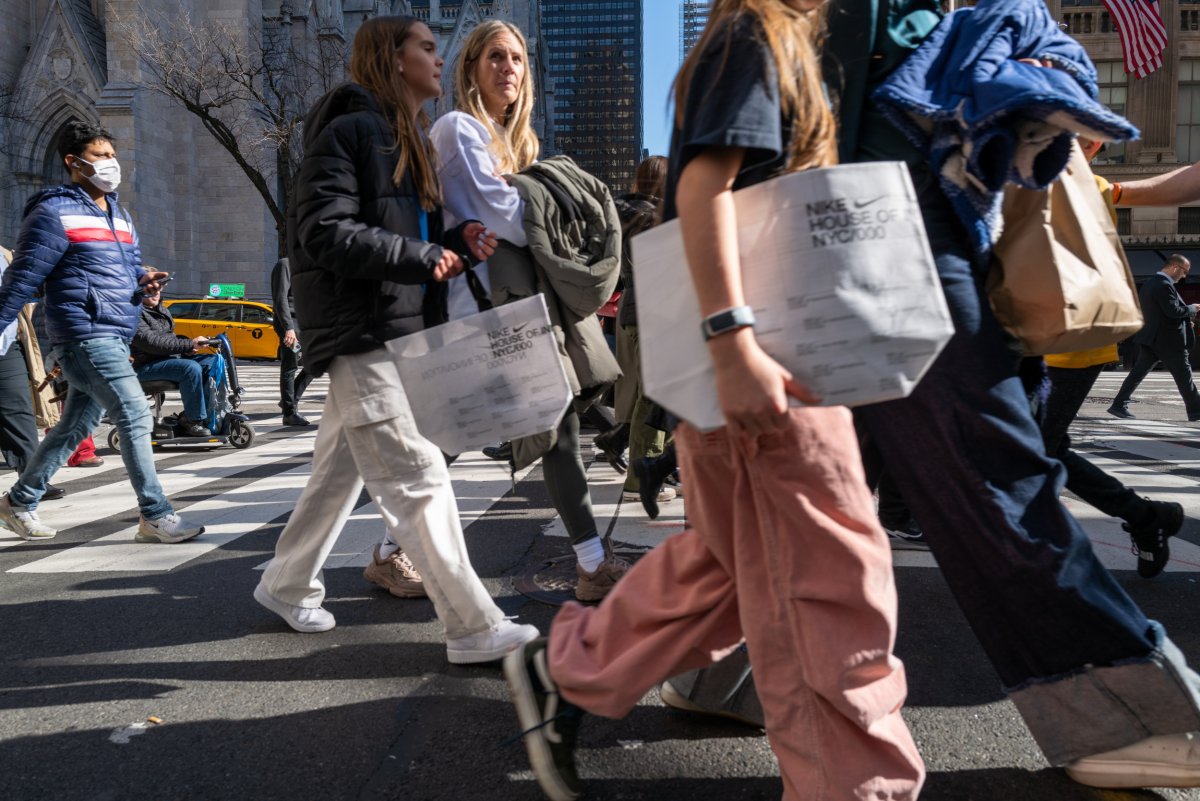Americans have amassed $19 billion in credit card debt in a single month, marking an even greater turn toward reliance on borrowing. With a population of 340 million, the figure translates to about $56 per person.
That surge, primarily in revolving credit, came as retail sales data "handily" exceeded expectations. According to Wells Fargo's weekly economic and financial commentary, U.S. households may have propped up retail sales using revolving credit, signaling potential financial strain for many.
November's consumer credit report showed an increase in total consumer credit, exceeding $5 trillion for the first time, according to Wells Fargo. The surge was largely driven by an increase in revolving credit—mainly credit cards—which accounted for $19.1 billion of the rise.
"Consumer credit card balances are at their highest levels ever as consumers have used their available credit to deal with higher-than-expected costs for goods and services," Michele Raneri, vice president of U.S. research and consulting at TransUnion, shared with Newsweek.
Learn more: What Is a Balance Transfer, and Should I Do One?
While the expert said that a reduction in the Federal Reserve's rates could allow many of those consumers to refinance existing credit card debt, there actually has been no significant reduction in borrowing, data shows, suggesting a credit resilience among Americans that could crack.
Those cracks are already starting to show. Wells Fargo reported on Fed data showing several regions experiencing a tightening in credit availability and an uptick in delinquency rates, pointing to a growing financial burden on households.
Newsweek has reached out to Wells Fargo via email for comment on Monday.
Specifically, the New York Fed noted an increase in financial pressure among families with high debt burdens. Similarly, the Philadelphia Fed observed a widening gap where low-income households are reducing their spending but incurring more debt, contrasting with high-income households that continue to spend freely.
In line with the above, the Cleveland Fed reported a higher reliance among lower-income groups on credit cards and "buy now, pay later" options. The Atlanta Fed's findings showed increased delinquencies in credit card payments, auto loans and personal loans, indicating stress in consumer finances while the Kansas City Fed expressed concerns about future credit performance and the lack of liquidity among borrowers.
The observations collectively paint a picture of financial strain across various consumer segments in the U.S., Wells Fargo said, which comes at a time of increased economic optimism. Despite the overall positive economic indicators, such as the 3.3 percent annualized GDP growth in the fourth quarter and resilient consumer spending, the increasing reliance on credit could signal underlying vulnerabilities.
Notably, the bank pointed to a dichotomy emerging where high-income households continue robust spending, while low-income families are increasingly burdened by the debt, evident from regional Fed observations of tightening credit and rising delinquencies.
It's a scenario that raises questions about the sustainability of current consumer spending patterns, according to Wells Fargo, especially as the labor market shows signs of moderation and real wage gains slow.

Uncommon Knowledge
Newsweek is committed to challenging conventional wisdom and finding connections in the search for common ground.
Newsweek is committed to challenging conventional wisdom and finding connections in the search for common ground.
About the writer
Aj Fabino is a Newsweek reporter based in Chicago. His focus is reporting on Economy & Finance. Aj joined Newsweek ... Read more
To read how Newsweek uses AI as a newsroom tool, Click here.








